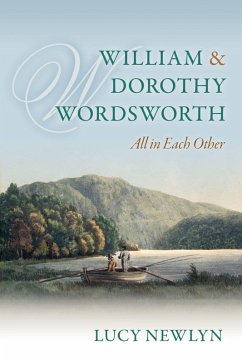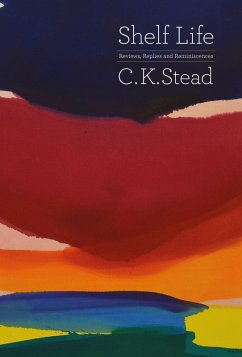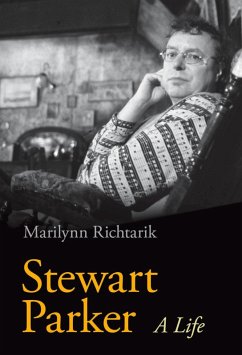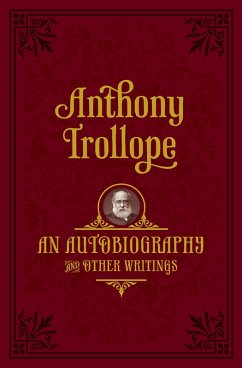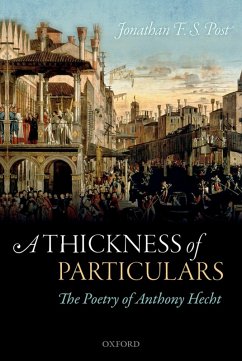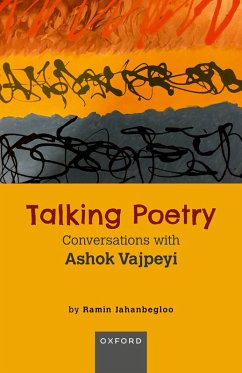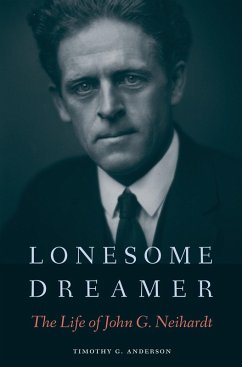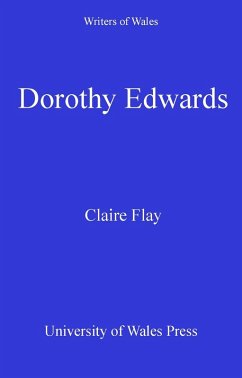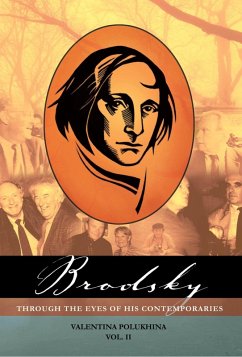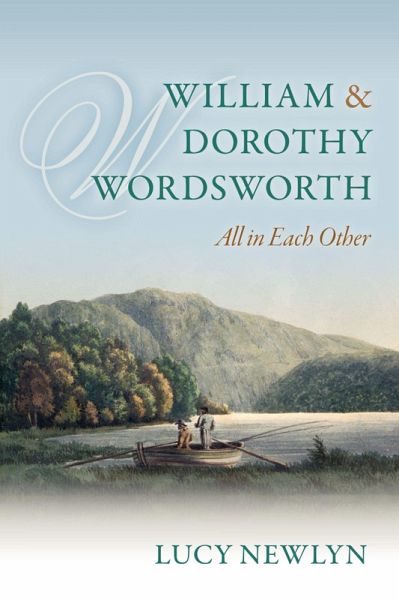
William and Dorothy Wordsworth (eBook, PDF)
'All in each other'
Versandkostenfrei!
Sofort per Download lieferbar
6,99 €
inkl. MwSt.
Weitere Ausgaben:

PAYBACK Punkte
3 °P sammeln!
William Wordsworth's creative collaboration with his 'beloved Sister' spanned nearly fifty years, from their first reunion in 1787 until her premature decline in 1835. Rumours of incest have surrounded the siblings since the 19th century, but Lucy Newlyn sees their cohabitation as an expression of deep emotional need, arising from circumstances peculiar to their family history. Born in Cockermouth and parted when Dorothy was six by the death of their mother, the siblings grew up separately and were only reunited four years after their father had died, leaving them destitute. How did their orph...
William Wordsworth's creative collaboration with his 'beloved Sister' spanned nearly fifty years, from their first reunion in 1787 until her premature decline in 1835. Rumours of incest have surrounded the siblings since the 19th century, but Lucy Newlyn sees their cohabitation as an expression of deep emotional need, arising from circumstances peculiar to their family history. Born in Cockermouth and parted when Dorothy was six by the death of their mother, the siblings grew up separately and were only reunited four years after their father had died, leaving them destitute. How did their orphaned consciousness shape their understanding of each other? What part did traumatic memories of separation play in their longing for a home? How fully did their re-settlement in the Lake District recompense them for the loss of a shared childhood? Newlyn shows how William and Dorothy's writings -- closely intertwined with their regional affiliations -- were part of the lifelong work of jointly re-building their family and re-claiming their communal identity. Walking, talking, remembering, and grieving were as important to their companionship as writing; and at every stage of their adult lives they drew nourishment from their immediate surroundings. This is the first book to bring the full range of Dorothy's writings into the foreground alongside her brother's, and to give each sibling the same level of detailed attention. Newlyn explores the symbiotic nature of their creative processes through close reading of journals, letters and poems -- sometimes drawing on material that is in manuscript. She uncovers detailed interminglings in their work, approaching these as evidence of their deep affinity. The book offers a spirited rebuttal of the myth that the Romantic writer was a 'solitary genius', and that William Wordsworth was a poet of the 'egotistical sublime' -- arguing instead that he was a poet of community, 'carrying everywhere with him relationship and love'. Dorothy is not presented as an undervalued or exploited member of the Wordsworth household, but as the poet's equal in a literary partnership of outstanding importance. Newlyn's book is deeply researched, drawing on a wide range of recent scholarship -- not just in Romantic studies, but in psychology, literary theory, anthropology and life-writing. Yet it is a personal book, written with passion by a scholar-poet and intended to be of some practical use and inspirational value to non-specialist readers. Adopting a holistic approach to mental and spiritual health, human relationships, and the environment, Newlyn provides a timely reminder that creativity thrives best in a gift economy.
Dieser Download kann aus rechtlichen Gründen nur mit Rechnungsadresse in A, B, BG, CY, CZ, D, DK, EW, E, FIN, F, GR, HR, H, IRL, I, LT, L, LR, M, NL, PL, P, R, S, SLO, SK ausgeliefert werden.




